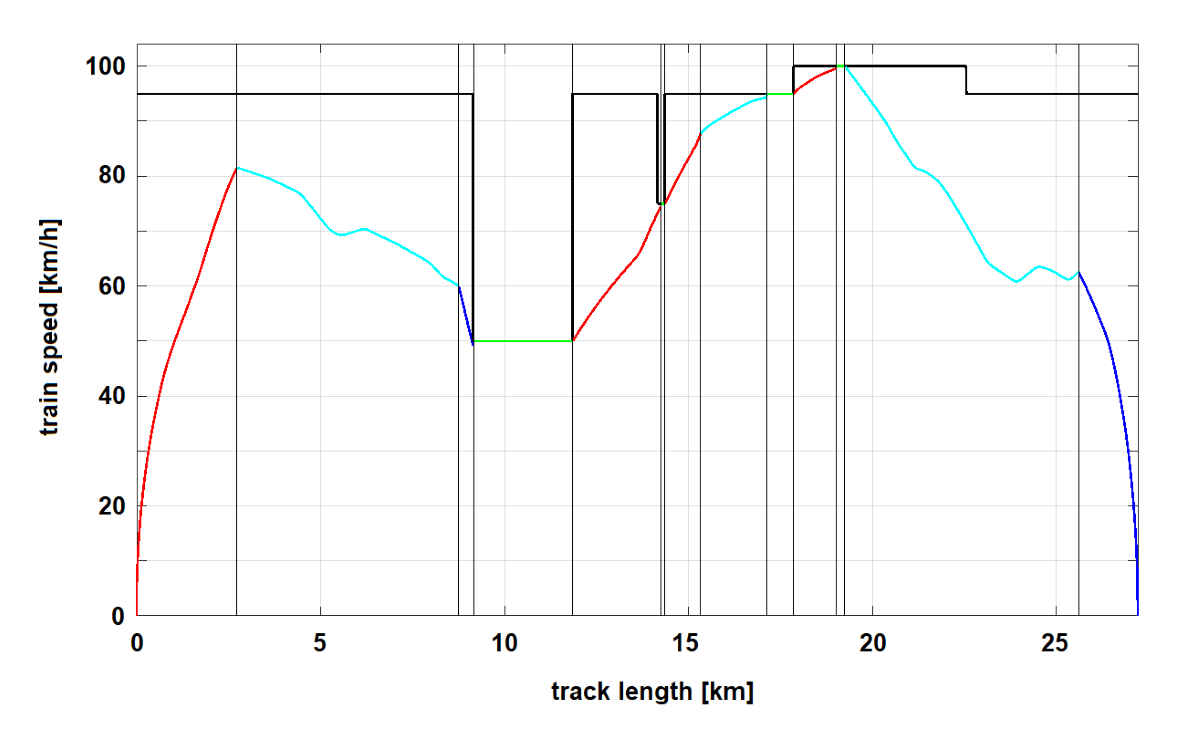Article
Version 1
Preserved in Portico This version is not peer-reviewed
Energy-efficient train driving based on optimal control theory
Version 1
: Received: 10 August 2023 / Approved: 10 August 2023 / Online: 10 August 2023 (16:15:43 CEST)
A peer-reviewed article of this Preprint also exists.
Heineken, W.; Richter, M.; Birth-Reichert, T. Energy-Efficient Train Driving Based on Optimal Control Theory. Energies 2023, 16, 6712. Heineken, W.; Richter, M.; Birth-Reichert, T. Energy-Efficient Train Driving Based on Optimal Control Theory. Energies 2023, 16, 6712.
Abstract
Efficient train driving plays a vital role in reducing the overall energy consumption in the railway sector. An energy minimising control strategy can be computed using the framework given by optimal control theory, in particular the Pontryagin maximum principle. Our optimisation approach is based on an algorithm presented by Khmelnitsky that considers electric trains equipped with regenerative braking. A derivation of Khmelnitsky’s theory from a more general formulation of the maximum principle is given in this article, and a complete list of switching cases between different driving regimes has been included that is essential for practical application. A number of numerical examples are added to visualise the various switching cases. Energy consumption data from real-life operation of passenger trains are compared to the calculated energy minimum. In the presented study, the optimised strategy was able to save 37 percent of the average energy demand of the train in operation.
Keywords
energy-efficient train driving; regenerative braking; optimal control theory; Pontryagin maximum principle; Khmelnitsky’s algorithm
Subject
Engineering, Transportation Science and Technology
Copyright: This is an open access article distributed under the Creative Commons Attribution License which permits unrestricted use, distribution, and reproduction in any medium, provided the original work is properly cited.
Comments (0)
We encourage comments and feedback from a broad range of readers. See criteria for comments and our Diversity statement.
Leave a public commentSend a private comment to the author(s)
* All users must log in before leaving a comment









